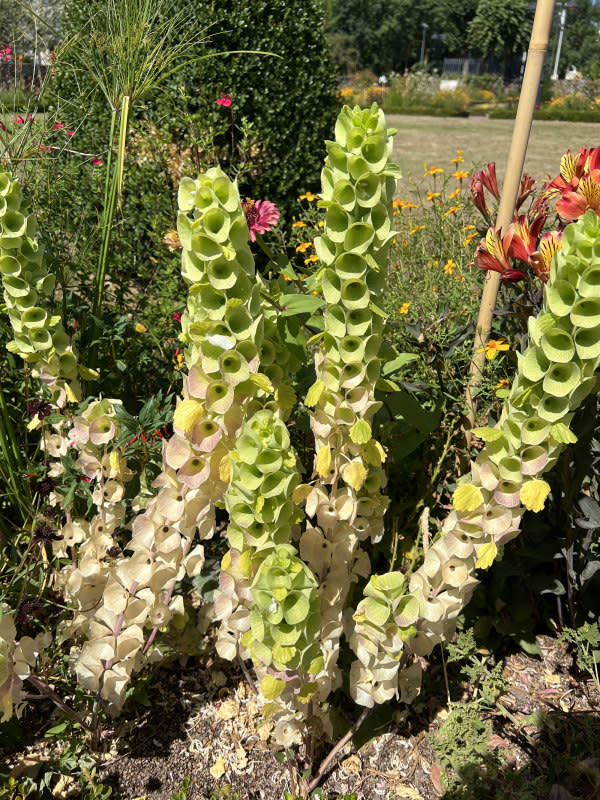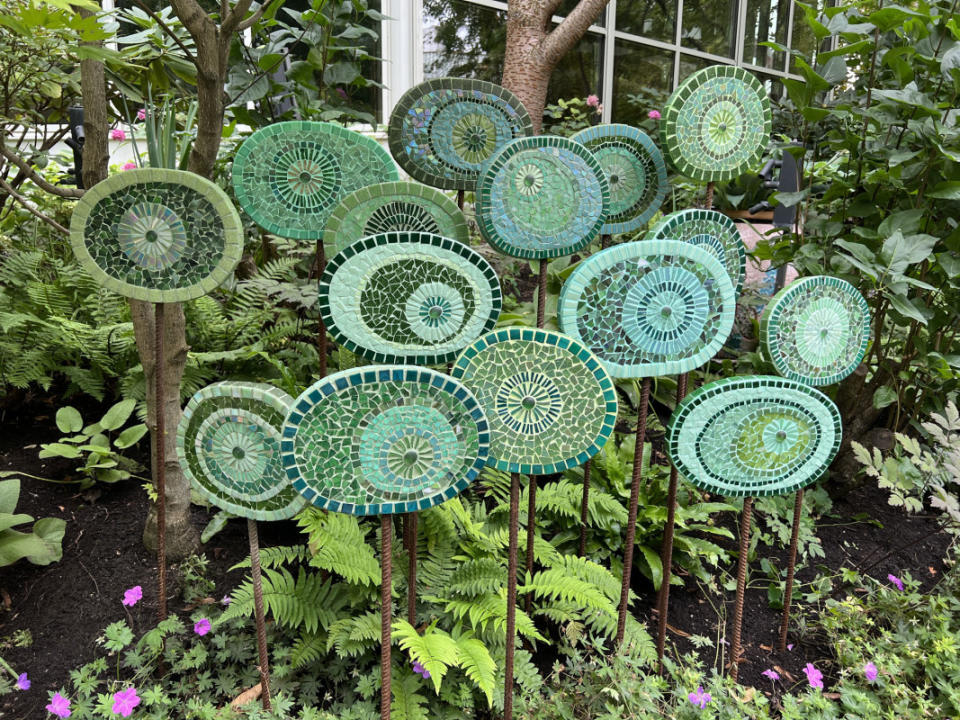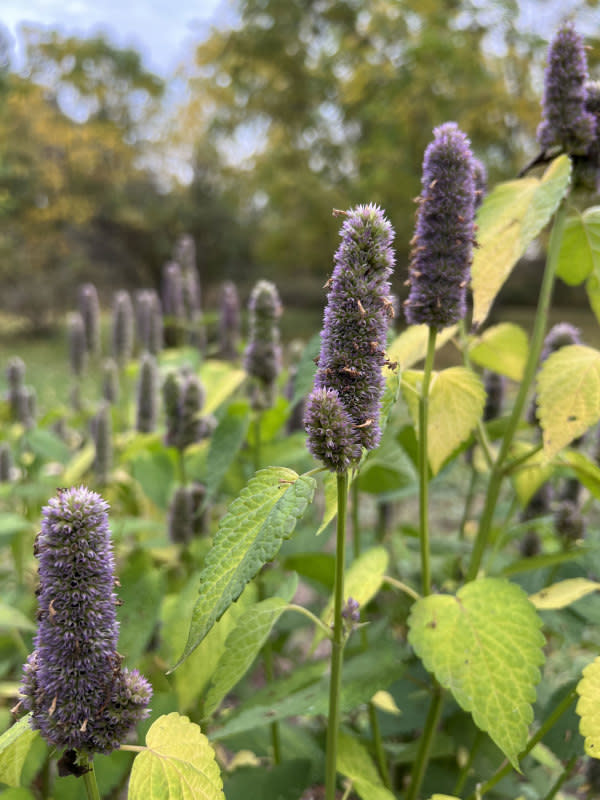How to Make a Feng Shui Garden
Gardening isn't just about planting flowers and vegetables; it's an opportunity to create a garden sanctuary that nourishes the mind, body, and spirit. For those new to gardening, building a garden can be both exciting and overwhelming but even seasoned gardeners may find themselves looking to upgrade their outdoor spaces with meaning, intention, and natural features.
Enter the concept of Feng Shui gardening — a holistic approach that blends ancient Chinese principles of design and energy flow with the art of gardening. In Feng Shui philosophy, the arrangement of elements in our environment has a profound impact on our well-being, influencing everything from our health and relationships to our prosperity and happiness.
Wood element: Represents growth, vitality, and flexibility.
Fire element: Symbolizes passion, energy, and transformation.
Earth element: Signifies stability, nourishment, and grounding.
Metal element: Represents clarity, focus, and refinement.
Water element: Symbolizes flow, abundance, and purification.
What sets Feng Shui gardening apart is its emphasis on creating a harmonious and balanced outdoor space that promotes the smooth flow of Qi, or life force energy. This approach to gardening isn't just about aesthetics; it's an opportunity to focus on garden design to support your physical, emotional, and spiritual well-being. Designing and building a Feng Shui garden involves creating a harmonious outdoor space that promotes positive energy flow and balance. Here are five key steps to help you design and build your Feng Shui garden:
1. Choose an Auspicious Location
In Feng Shui, the location of your garden within your property is significant.
Select an area of your property that receives ample sunlight and is sheltered from strong winds.
Orient the garden away from the main entrance to your home to avoid negative energy patterns.
Consider creating the garden space in a secluded area of the backyard or along a winding pathway for a sense of tranquility and privacy.

Emily Fazio
2. Create Curved Pathways and Plant Beds
Straight lines are bad energy. You want a meandering path and curvy lines for your Feng Shui garden to have a positive flow.
Install curved features like garden beds that carry you into and through the garden. A curved path invites visitors to explore and linger.
Use curved edges for plant beds rather than sharp angles to soften the energy and create a sense of energetic flow.
Incorporate natural materials such as stone, gravel, or mulch to define pathways and borders.
3. Balance Yin and Yang Elements
Feng Shui gardens aim to achieve a harmonious balance of Yin and Yang energies.
Yin elements, such as water features, shade-loving plants, metal wind chimes, and quiet seating areas, promote relaxation and receptivity.
Life-giving yang energy requires vibrant flowers, tall trees, and sunlit spaces to represent activity and vitality.
Integrate a mix of Yin and Yang elements throughout your garden to create a dynamic yet balanced environment.

Emily Fazio
4. Select Plants with Intention
Varied foliage can be both beautiful and harmonious. Always consider your natural climate as well as the amount of sunlight your garden receives. Harsh winters? Consider raising delicate plants in pots so they can be brought indoors during the winter.
Choose healthy plants that thrive in your local climate and soil conditions while aligning a balance of energy. Bamboo symbolizes strength, Lavender for tranquility, Jasmine for love, Money Plant for prosperity, Peony for romance, Citrus Trees for vitality, Rosemary for protection, and Lotus for spiritual growth. Avoid negative energy plants like cacti with sharp thorns, plants with invasive root systems, or those with aggressive growth habits like mint, ivy, and knotweed.
Consider the symbolism and energy qualities associated with different plants, such as bamboo for strength and resilience or lavender for tranquility and healing.
Incorporate a variety of colors, textures, and heights to create visual interest and balance in the garden.
Related: The Best Plants For Biophilic Interior Design
5. Incorporate Water Features
Water is a powerful Feng Shui element that symbolizes prosperity, abundance, and the flow of energy.
Consider a water element such as a fountain, pond, or reflecting pool.
Be mindful of the size. You'll want this feature to be easy enough for you to maintain. Consider its depth, or incorporate varied depths to plants, fish, and rocks. Any filters and waterfalls should allow for smooth, gentle movement.
Avoid placing water features directly in front of the main entrance to your home to prevent excessive Yang energy.

Emily Fazio
6. Add Inviting Seating Areas
Place garden furniture strategically to create inviting seating areas where you can relax and enjoy the beauty of your surroundings. Position outdoor furniture near focal points such as water features or lush, green plants to enhance healing energy and connection with nature.
Opt for natural materials such as wood, rattan, or bamboo to harmonize with the natural elements of the garden. Avoid furniture made from synthetic materials or metals that may feel out of place or create discordant energy.
What's the best color palette for a Feng Shui garden?
Earthy Tones: An obvious element. Use Beige, taupe, terracotta, and brown create grounding and stability.
Soft Greens: Sage, moss, and olive evoke tranquility and vitality. Your plants will help deliver these natural garden colors.
Cool Blues: Sky blue, aqua, and cerulean bring calm and clarity.
Soft Whites: Ivory, cream, and pearl offer purity and serenity.
Subtle Yellows: Buttercream, lemon, and gold add warmth and optimism.
Related: How to Save Seeds at the End of the Gardening Season

